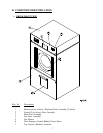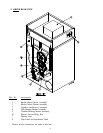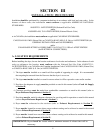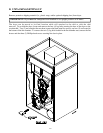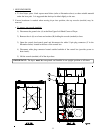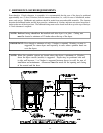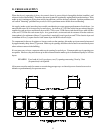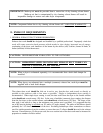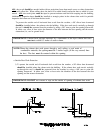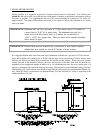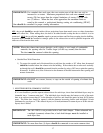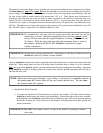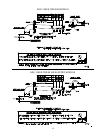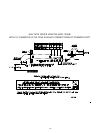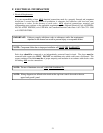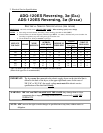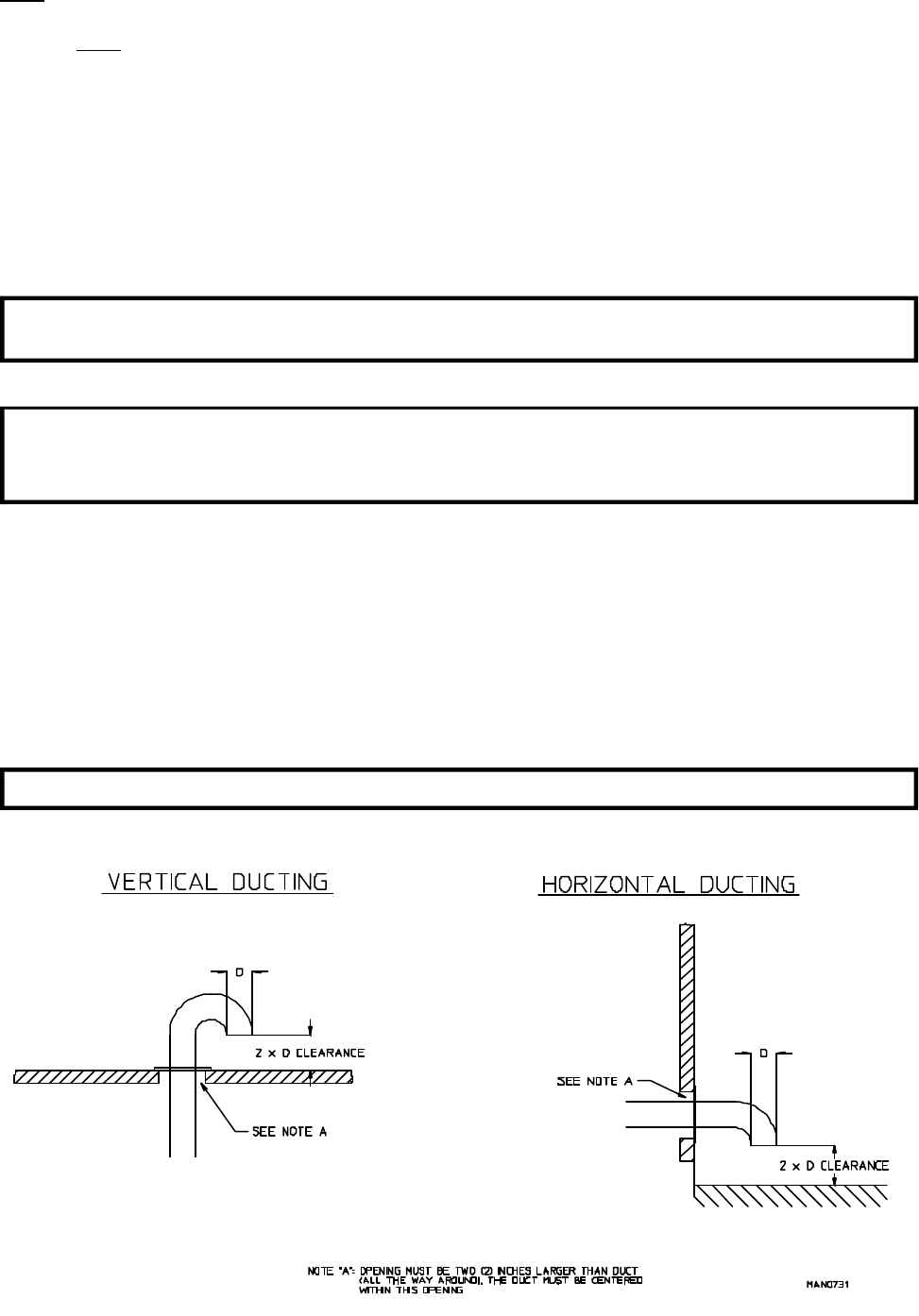
15
ALL duct work should be smooth inside with no projections from sheet metal screws or other obstructions
which will collect lint. When adding ducts, the ducts to be added should overlap the duct to which it is con-
nected. ALL duct work joints must be taped to prevent moisture and lint from escaping into the building.
Additionally, inspection doors should be installed at strategic points in the exhaust duct work for periodic
inspection and clean-out of lint from the duct work.
To protect the outside end of horizontal duct work from the weather, a 90° elbow bent downward
should be installed where the exhaust exits the building. If the duct work travels vertically up through
the roof, it should be protected from the weather by using a 180° turn to point the opening downward.
In either case, allow at least twice the diameter of the duct between the duct opening and the nearest
obstruction (i.e., roof or ground level).
IMPORTANT: Exhaust back pressure measured by a manometer at the dryer exhaust duct area
must not exceed 0.3 inches of water column.
NOTE:Where the exhaust duct work passes through a wall, ceiling, or roof made of
combustible materials, the opening must be 2-inches larger (all the way around) than
the duct. The duct must be centered within this opening.
a. Outside Duct Work Protection
1) To protect the outside end of horizontal duck work from the weather, a 90° elbow bent downward
should be installed where the exhaust exits the building. If the exhaust duct work travels vertically
up through the roof, it should be protected from the weather by using a 180° turn to point the
opening downward. In either case, allow at least twice the diameter of the duct between the duct
opening and the nearest obstruction.
IMPORTANT: DO NOT use screens or caps on the outside of opening of exhaust duct work.



